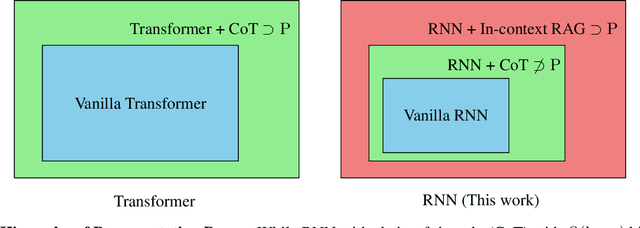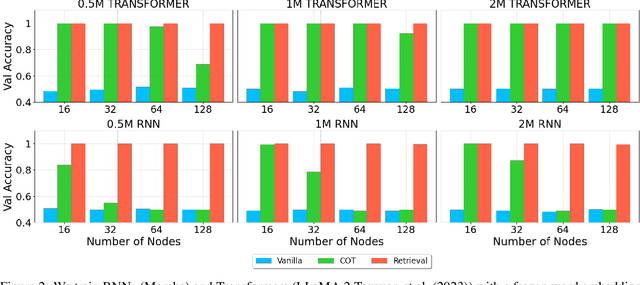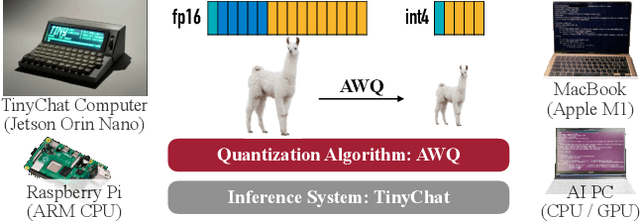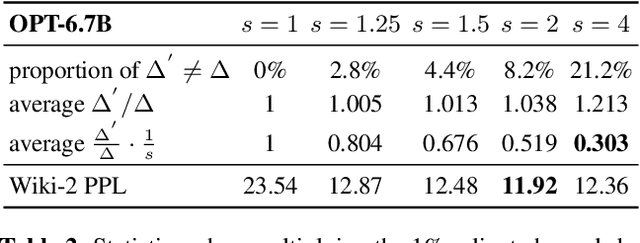Xingyu Dang
Weight Ensembling Improves Reasoning in Language Models
Apr 15, 2025Abstract:We investigate a failure mode that arises during the training of reasoning models, where the diversity of generations begins to collapse, leading to suboptimal test-time scaling. Notably, the Pass@1 rate reliably improves during supervised finetuning (SFT), but Pass@k rapidly deteriorates. Surprisingly, a simple intervention of interpolating the weights of the latest SFT checkpoint with an early checkpoint, otherwise known as WiSE-FT, almost completely recovers Pass@k while also improving Pass@1. The WiSE-FT variant achieves better test-time scaling (Best@k, majority vote) and achieves superior results with less data when tuned further by reinforcement learning. Finally, we find that WiSE-FT provides complementary performance gains that cannot be achieved only through diversity-inducing decoding strategies, like temperature scaling. We formalize a bias-variance tradeoff of Pass@k with respect to the expectation and variance of Pass@1 over the test distribution. We find that WiSE-FT can reduce bias and variance simultaneously, while temperature scaling inherently trades-off between bias and variance.
RNNs are not Transformers : The Key Bottleneck on In-context Retrieval
Feb 29, 2024



Abstract:This paper investigates the gap in representation powers of Recurrent Neural Networks (RNNs) and Transformers in the context of solving algorithmic problems. We focus on understanding whether RNNs, known for their memory efficiency in handling long sequences, can match the performance of Transformers, particularly when enhanced with Chain-of-Thought (CoT) prompting. Our theoretical analysis reveals that CoT improves RNNs but is insufficient to close the gap with Transformers. A key bottleneck lies in the inability of RNNs to perfectly retrieve information from the context, even with CoT: for several tasks that explicitly or implicitly require this capability, such as associative recall and determining if a graph is a tree, we prove that RNNs are not expressive enough to solve the tasks while Transformers can solve them with ease. Conversely, we prove that adopting techniques to enhance the in-context retrieval capability of RNNs, including Retrieval-Augmented Generation (RAG) and adding a single Transformer layer, can elevate RNNs to be capable of solving all polynomial-time solvable problems with CoT, hence closing the representation gap with Transformers.
AWQ: Activation-aware Weight Quantization for LLM Compression and Acceleration
Jun 01, 2023



Abstract:Large language models (LLMs) have shown excellent performance on various tasks, but the astronomical model size raises the hardware barrier for serving (memory size) and slows down token generation (memory bandwidth). In this paper, we propose Activation-aware Weight Quantization (AWQ), a hardware-friendly approach for LLM low-bit weight-only quantization. Our method is based on the observation that weights are not equally important: protecting only 1% of salient weights can greatly reduce quantization error. We then propose to search for the optimal per-channel scaling that protects the salient weights by observing the activation, not weights. AWQ does not rely on any backpropagation or reconstruction, so it can well preserve LLMs' generalization ability on different domains and modalities, without overfitting to the calibration set; it also does not rely on any data layout reordering, maintaining the hardware efficiency. AWQ outperforms existing work on various language modeling, common sense QA, and domain-specific benchmarks. Thanks to better generalization, it achieves excellent quantization performance for instruction-tuned LMs and, for the first time, multi-modal LMs. We also implement efficient tensor core kernels with reorder-free online dequantization to accelerate AWQ, achieving a 1.45x speedup over GPTQ and is 1.85x faster than the cuBLAS FP16 implementation. Our method provides a turn-key solution to compress LLMs to 3/4 bits for efficient deployment.
 Add to Chrome
Add to Chrome Add to Firefox
Add to Firefox Add to Edge
Add to Edge